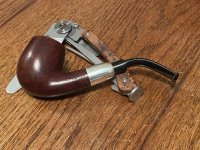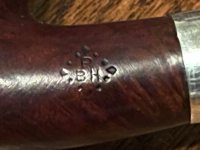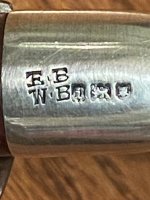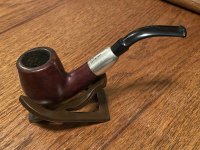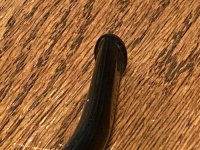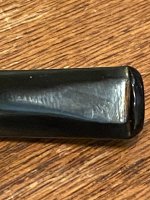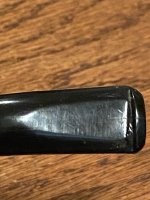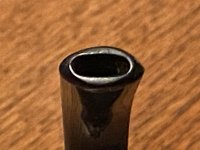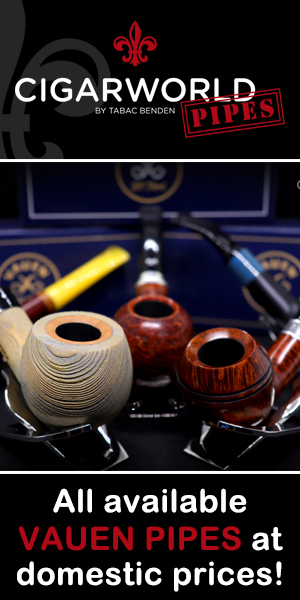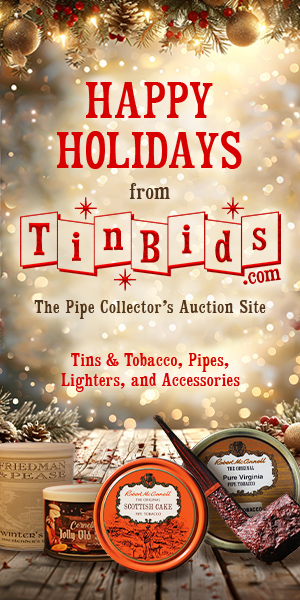Hi Jesse, I remember digging into this question a few months back when the other PBH pipe popped up. The short version is I don’t know the answer but know how to find it out. Since it will involve ordering materials from the stacks and a trip to the NYPL that unfortunately won’t be happening anytime soon. So barring a brainstorm on my part suggesting another place to look this will remain a mystery for the foreseeable future, at least as far as I’m concerned. Best, Jon
Hi Ash & Orlando,
As sometimes happens I had a revelation a week or so ago, or at any rate an idea, which obviated the necessity of a trip to the NYPL to solve the PBH conundrum. And it turns out that the hoped for clue, which arrived in Tuesday's mail, was exactly what the doctor ordered and I was able to figure out with complete certainty (a rare thing in life) who PBH was. The clue, for the insatiably curious, was a tiny ad in the classified section of an issue of Punch published in July of 1964. Originally I assumed I'd have to have it pulled from the stacks someplace (lazy thinking driven by many visits paid to libraries for my research). The obvious and far easier alternative was simply locating and buying the issue in question from a dealer. Once the magazine arrived I found the ad I was looking for, reproduced below:
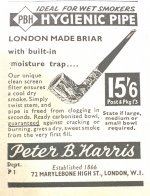
After seeing the logo paired with a name it became certain that Peter B Harris (ltd) was the eponymous PBH and the seller of Ash's Barling from 1904 and Orlando's from 1903. That ended the hard part. At that point it became a matter of simple digging, which although a nontrivial effort as it turned out, is almost always eventually productive when you know where to put the goddamn shovel.
And here, in short, is the backstory that emerged.
Benjamin Harris was born in London in 1842 to Jewish parents Joseph and Martha Harris. Although briefly a clothier in his youth he was supposedly involved in the tobacco trade by 1866, although contemporary records generally listed him as a licensed victualler (ie publican) until about 1875. Note that in 1874 he announced a change in his name to Peter Benjamin Harris (perhaps as an attempt to anglicize his origins), and it is by that name and its initials that he and the business he established became known.
Harris, who begins to be listed as a tobacconist and/or cigar importer by 1875, operated several pubs in his licensed victualler days. By 1890 the pubs had disappeared and his tobacco business was apparently confined to 55 & 19A Gracechurch Street. There the business remained for a number of decades.
Harris married a woman named Miriam Hart in 1866. They had no children together, and after Miriam died in 1890 Harris married a second time the next year. His new wife was named Grace Wisdom Vernon Chichester. For her too it was a second marriage, her first husband having died in 1882.
After perhaps 40+ years in the tobacco trade Harris died in June of 1908. Grace took over the business (her many children by her first marriage being either uninterested or uninvited) and remained at the helm until her own death 20 years later in May of 1928. What happened next is murky, complicated and irrelevant to the story of Ash's and Orlando's pipes, but in brief involves an entity named the Amalgamated Tobacco Trust. The Trust was formed at the very end of 1928. In modern jargon its mission would be called a rollup play, targeted at consolidating retail tobacco outlets in London and the provinces. Among many other businesses the AMT bought PBH, perhaps as part of the settlement of Grace's estate. After a big initial splash the Trust began to perform poorly and investor enthusiasm perceptibly waned. As the Depression worsened the company was renamed Peter B Harris Limited in 1932, and what had once been the name of a small operation was now the name of a large one. Rebranding can often work miracles. In this case it did not, and a year later PBH was sold to a mystery bidder. Interestingly enough the bidder turned out to be A Preedy & Sons of Dudley, another known seller of early Barling pipes. Subsequent to its purchase PBH was used by Preedy as a platform for further acquisitions of tobacconists including Hobson's of Huddersfield and Jolly's of Mansfield. PBH apparently remained active until the early years of this century, but changing tastes appear to have resulted in its eventual liquidation about a dozen years ago.
As for your Barlings from 1903 & 1904, both were bought out of the shop on Gracechurch Street in its heyday, and in all likelihood personally sold by Peter Benjamin Harris or his wife Grace. I think both are beauties and a reminder of a vanished age. I know how much you treasure them.
Best rgds,
Jon
